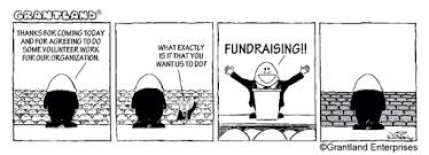I recently came across this post and found it fascinating: Want to Be Happy at Work? Care Less About It by Kelly O’Laughlin on Quiet Revolution. Whether or not you’re an introvert, you will likely relate to this post if you’re a hard-working Millennial working at a nonprofit. So many of us are working our hearts out for our clients and for the benefits of others, and unfortunately the term “nonprofit burnout” is not one that’s foreign to us.
I was hesitant to completely buy in to the post until she compared my 80% effort to others’ 100%… and then I got it. By not giving my all 100% of the time, I am recognizing that I am not perfect and cannot solve all of the world’s problems all by myself. It’s a moment of remembering my last post, Be An Average Nonprofit Unicorn. This quote specifically resonated with me:
“Putting in slightly less effort in times of high stress doesn’t mean you don’t care about your job; it means you care about yourself more.”
Let’s remember to focus on self-love and self-care first and foremost. Because we can only show up to take care of others after we have shown up to take care of ourselves.
-N.C.










